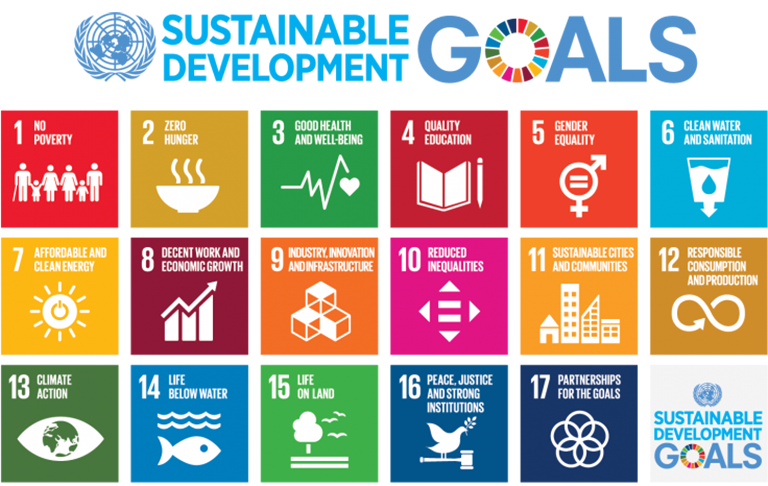Concordia joins the Decade of Action with its commitment to the UN Sustainable Development Goals

To accelerate solutions for the world’s biggest challenges — from poverty and inequality to climate change and resource depletion — the United Nations has declared 2020 to 2030 a worldwide Decade of Action to meet its Sustainable Development Goals (SDGs). Concordia is officially joining the effort.
To signal its commitment, the university is signing the University Global Compact, a declaration that enlists postsecondary institutions in the work of delivering on the SDGs.
Concordia is also joining Sustainable Development Solutions Network Canada, part of an international movement of universities, colleges, research centres and knowledge institutions that aims to develop practical solutions for a cleaner, fairer future.
The UN developed the 17 SDGs after a years-long consultation process. Approved in 2015, the goals provide a call to action and game plan for promoting prosperity while protecting the planet.
“Sustainable development is more urgent than ever for countries the world over,” says Concordia President Graham Carr. “It’s for everyone, everywhere. We’re in this together — it’s a shared responsibility.”
He sees tangible benefits to making an institutional commitment to the SDGs. “These goals are not just aspirational. They will provide us with a framework to direct our engagement and efforts, spell out specific objectives and allow us to link to greater networks and communities,” he adds.
Carr envisions Concordia developing courses and further learning opportunities related to the SDGs — such as the Sustainability Ecosystem established by the John Molson School of Business — that foster the development of new SDG-oriented research collaborations and forges close partnerships with other universities doing groundbreaking work around the global goals.
In addition, Concordia will be exploring the creation of an SDG Lab for Montreal and Quebec. It will be modelled on the SDG Lab in Geneva, Switzerland, which aims to spur collective action on the SDGs locally and provincially.
Concordia’s actions are in line with an emerging push toward the SDGs in Quebec. Earlier this year, a consortium of non-profit organizations, private companies, foundations and citizen’s groups formed the Consortium Accélérer 2030 pour le Québec to increase awareness about and action to meet the goals.
“This new commitment is an exciting opportunity for Concordia to advance our academic engagement and interconnectedness with others,” says Anne Whitelaw, interim provost and vice-president, academic. “It will move us toward our ambitious goals of increasing our social impact and working in partnership with communities, governments and business on sustainable futures.”
Paula Wood-Adams, interim vice-president of research and graduate studies, agrees, noting that the SDGs also provide a valuable route for Concordia researchers to collaborate with and link to international networks.
“They will compel us to think in ways that cross interdisciplinary research boundaries to address questions such as those relevant for cities, health and sustainability.”

Initial steps
To get started, Concordia will be undertaking a Voluntary University Review (VUR), a process for mapping its activities and assets around the SDGs and for developing strategies to deepen the efforts. More information about the VUR process is coming soon.
The 2020 Times Higher Education (THE) University Impact Rankings already rates Concordia’s contributions for two SDGs — Sustainable Cities and Communities and Climate Action — among the top 20 universities in the world and top in Canada for the impact of Quality Education. Overall, Concordia places in the 101-200 category out of 766 participating institutions.
The university’s SDGs commitment builds on recent pledges to divest from fossil fuel industries, make 100 per cent sustainable investments and achieve carbon neutrality. The Government of Quebec has acknowledged Concordia as the most energy-efficient of Quebec’s six major universities for 21 years and counting, and it was the first university in Canada to issue a sustainable bond.
Roger Côté, Concordia’s former vice-president of services, and his team have created a Sustainability Action Plan that will be launched in October and will include defined milestones for the university. The Services team is seeking to achieve carbon neutrality by exploring, for example, alternative heating sources.
“Most of our project managers and faculty members are already making changes,” Côté says. “Our final plan will provide additional support and a clear roadmap.”
The commitment to SDGs also underscores the university’s continuing efforts to decolonize and Indigenize the institution — in particular through the Indigenous Directions Action Plan and the Task Force on Anti-Black Racism — and its commitments to equity, diversity, inclusiveness and confronting systemic bias in all its forms.
The SDGs also provide a framework from which to build on the university’s strengths in community health, global literacy, water security, environmental impact and sustainable infrastructure design.
SDG number 17, Partnerships, also aligns with Concordia’s core values, embodied by the university’s SHIFT Centre for Social Transformation, Office of Community Engagement, rich history of international alliances and more.
“The SDGs provide a way to advance our next-generation university’s long-term vision,” Carr notes. “Our commitment is a vitally important way for us to contribute to the effort to ‘build back better’ in response to the current pandemic, and to spur collective action toward a sustainable future.”
Learn more about Concordia’s sustainability initiatives.


